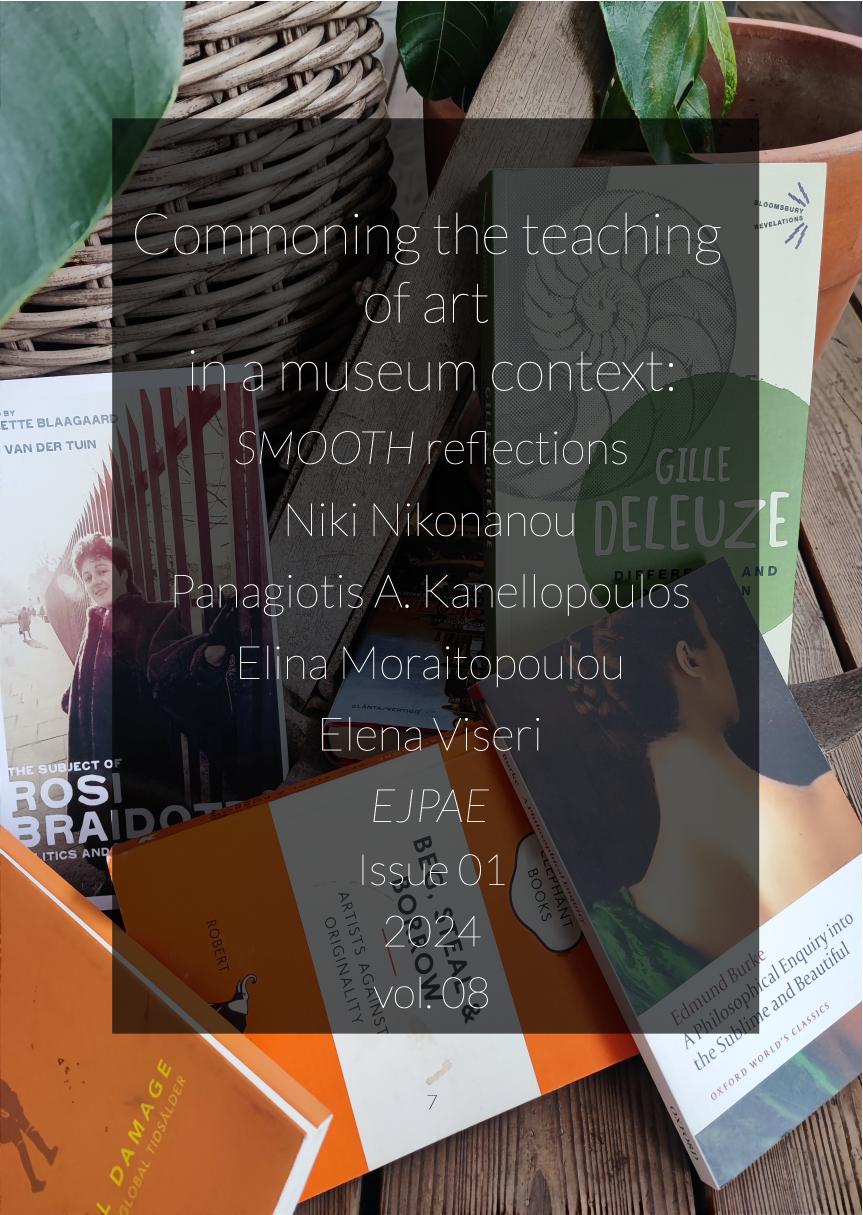Commoning the teaching of art in a museum context
SMOOTH reflections
DOI:
https://doi.org/10.5281/zenodo.10904179Keywords:
museum education, music education, educational commons, creative arts education, teacher agency, unlearningAbstract
Drawing on the experience of a series of multi-art education workshops run in a museum of modern art with the participation of a group of upper secondary school students, this paper reflects on how the philosophy of educational commons might help us rethink the role of the educator in museum-based art-education initiatives. By focusing on the transformations, the challenges, the failures and the openings experienced by the educators of this program in their attempt to work on the basis of the philosophy of educational commons, we arrive at an articulation of what might be referred to as patterns of commoning teacher agency. More specifically, based of an ecological model of teacher agency that Priestley et al. (2015) proposed on the basis on the work of Emirbayer & Mische (1998) we identify patterns of commoning museum educators’ agency that operated on an iterational, a practical-evaluative and a projective dimension. On the iterational dimension, a commoning approach to teaching led museum educators to re-evaluate past experiences, received ideas, and cherished practices, inducing a process of unlearning. On the practical-evaluative dimension, it enabled museum educators to implement new ways of working and relating to students and their worlds, and to come up with ideas and tools that expand “The social, structural and material ‘here and now’ of possible agency” (Philpott & Spruce 2021, 290) and its distribution. On the projective dimension it enabled museum educators to imagine alternative ways of exercising agency, envisioning a way of commoning the museum. The resultant reorientation of the role of the teacher in museum-based, commons-derived creative art-education practices might be seen as providing a much needed alternative to the pervading neoliberal colonisation of education initiatives in cultural institutions.

Downloads
Published
Issue
Section
License
Copyright (c) 2024 Panagiotis Kanellopoulos, Niki Nikonanou, Elina Moraitopoulou, Elena Viseri

This work is licensed under a Creative Commons Attribution 4.0 International License.
EJPAE provides immediate open access to all its published content. Users do not need to register or pay to read content.
https://creativecommons.org/licenses/by/4.0/
Authors of content published in European Journal of Philosophy in Arts Education (EJPAE) retain the copyright to their works. Content is free to be used by anyone as long as you "[...] give appropriate credit, provide a link to the license, and indicate if changes were made. You may do so in any reasonable manner, but not in any way that suggests the licensor endorses you or your use." and "No additional restrictions — You may not apply legal terms or technological measures that legally restrict others from doing anything the license permits." (from the Creative Commons licence agreement)
EJPAE does not charge any author or publication fees.
Authors are encouraged to deposit the final published version of their article for self-archiving (author's personal website) and/or archiving in an institutional repository immediately upon publication.




